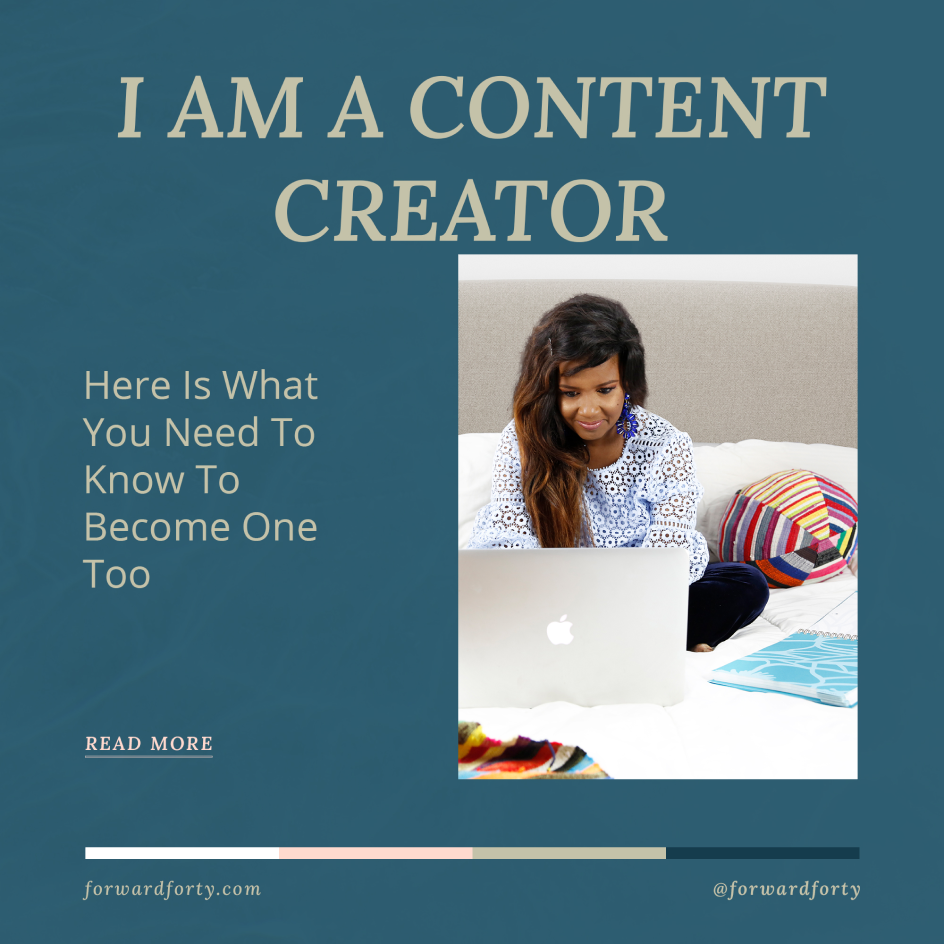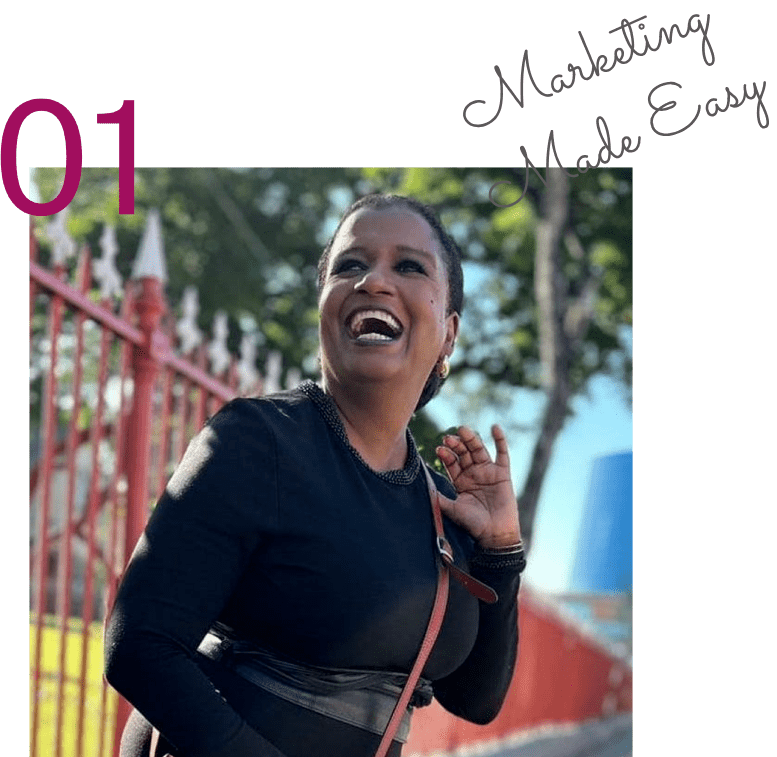Did you know that one of the most searched for professions right now on Google is “content creator?” Content entrepreneur has emerged as a serious search keyword.
Table of Contents
ToggleBut a few years ago the terms didn’t even exist. Sure, writers moved on to become bloggers. Some of them even became wealthy.
However, as the profession grew, content creation required a whole heap of skill sets other than the ability to write, though it still remains an important skill.
What Is Content Creation
Before I get into the weeds of being a content entrepreneur, let’s talk about what I mean by content creation.
We use the word all the time and many people can’t clearly define it.
The truth is a majority of content creators are multi-passionate multitaskers.
They write, film, tell stories on YouTube, roll out podcasts and bring visual stories to life.
They create.
Content creators can also become influencers, working on their own businesses or for other brands.
It’s so easy to confuse a content entrepreneur with a. content creator though because the line between the two is blurred.
So let’s aim for clarity; by the end of this post I promise to provide information around a couple of areas:
- What skills you need to get started with content creation
- Exactly HOW, you can build a profitable biz as a content entrepreneur
- Why you need to understand SEO etc as a content entrepreneur
CONTENT CREATOR OR CONTENT ENTREPRENEUR?
Before I jump into what it takes to work as a content creator, I want to make the distinction between the hobbyist and strategist; the content creator and the content entrepreneur.
I like separating it out because let’s face it, we’re all living in a time where we know a 12-year-old who is crushing it on Tik Tok.
So here’s the question: “Is that 12-year-old girl a content creator too?
She is but there’s a catch!
If that pre-teen is generating content and getting money for her work, then for sure, she’s a bona fide content creator.
If she is also applying strategy to build a business model that’s measurable, sustainable and scalable then let’s call a spade a spade.
She’s a content entrepreneur, no matter how young or old she is.
IS PRODUCING CONTENT A HOBBY OR STRATEGY?
Now a content creator can create content for fun and yes, that creator can make loads make money doing just that
I’m thinking about affiliate marketers or small biz owners recording pieces of content to their support sales efforts.
The strategist however is focused on crafting her ability to influence others in a way that drives her followers to engage.
She monetizes that interest and engagement, and then her focus shifts to scalability and sustainability.
Got it?
Most times, the content creator and the content entrepreneur differ in the quality and frequency of their work as well as their intent.
Neither one is better than the other. Again, it all depends on what each wants or even figures out.
I want to clear up something else too.
An employee working an 8 hour day can also be a content creator once she is producing digital assets for her employer.
How much she knows about the company and how good she is simplifying corporate jargon while meeting the business goals will make her a stand out employee.
But we can’t all her entrepreneur because what she creates does not belong to her. She is not profiting from her output
You can find out why I think knowledge is the most important asset you should have as a content entrepreneur.
But let’s get back to the independents, the ones who are very much entrenched in the passion/creators’ economy.
Let’s talk about the skills that allow them to apply strategy and as a by-product, grow a profitable online business and brand.
THE FIRST SKILL FOR A CONTENT ENTREPRENEUR: WRITE FOR HUMANS
Becoming a content entrepreneur does not begin and end with a piece of viral content.
I can’t begin to tell you how many creators, influencers, small business owners have had one viral hit and were never seen or heard of again.
The work happens way before that point. And after.
I’m going to use my own career as an example.
I worked in PR at an executive level for almost two decades. I built a career in storytelling across print and broadcast media before starting my own public relations firm.
I honed my ability to understand that your tribe and your ability to communicate with them in a way that promotes understanding is EVERYTHING.


So my best advice is to first learn how to write like a human being for another human being.
This is where many content creators at the start of their journey get it wrong, and where large brands really suck.
MISTAKES THE BIG BRANDS MAKE
Most brands (the big ones are guilty as charged with this one) are used to writing stuffy, lofty language.
On the other hand every small biz onwer is using ChatGPT and while I love AI, an over use of it in copy, creates a generic, bland tone.
When we succumb to allowing AI to do all our writing without sharing our personal experiences and tone, we forget that on the other side, the person consuming our content is a human.
Whether that person is relaxing in front of the TV or sitting in front of the computer or eating while listening to a podcast…
…. that person wants to be informed and /or inspired, laugh or find some nuggets of wisdom quickly without having to read/listen to it twice.
So if you intend to become an online content creator, and later a content entrepreneur, I’d suggest you think exclusively about the person and/ or audience you’re writing for.
For instance, I love the way Marie Forleo writes. She is the ultimate content entrepreneur in my books.
She churns out videos, blog posts, books, courses, makes millions. from them but her work never feels stuffy.
Her content is useful, informative and wildly entertaining.
She swears at times, it works for her brand, and her followers love her for the daily value she brings to their businesses and lives.
All Content Entrepreneurs Work Hard
For the outsider looking in, content creation looks like a hell of a lot of fun. After all, the work is creative.
As a content entrepreneur, I am always working in front of and/or behind the camera.
I am constantly producing something, crafting images, words, visuals, workbooks, courses. The list is endless, and boy-o-boy does it look cool.
But that’s surface stuff.
What people don’t see are all the proposals that need to be written, the briefs that need to be produced and distributed
The long hours brainstorming and finessing how to tell a story and influence engagement while scaling a business.
IMPORTANT QUESTIONS TO ASK
There’s the practical stuff too: editing, learning full scripts, crafting captions, booking technical crews, meeting deadlines, marketing.
It’s exhausting and many times, lonely.
For instance, when in pre launch mode, I can easily spend 15 hours or more a day building systems for my digital offer.
In that period, it is a full-time job that consumes time, energy, and focus.
There’s the downtime of course, after my digital offer is built and when my systems are fully automated, I can spend several months having that one offer work for me.
Like all jobs managing your work/life balance boundaries will become important.


WHAT SKILLS SHOULD AN ONLINE CONTENT ENTREPRENEUR HAVE?
Gosh, in the past we could’ve have talked about the journalism, marketing, or writing degrees that some content creators came to the table with.
That was the past.
No we talk about the super creative geniuses who grew up on the Internet.
Most of them have mastered the art and science of storytelling without stepping inside a university.
But guess what? I don’t want to discuss anything related to a degree. Why? It’s simple.
Content creators can come from a broad array of disciplines. Some are so young and naturally gifted when on camera, their range is amazing.
One of my favourite fashion content creators, Monroe Steele, has a Phd. in Physiotherapy and makes millions doing fashion, travel and lifestyle content
Soft Skills Matter
For me, the soft skills matter in addition to your ability to write, communicate and have a strong appetite for social media and digital marketing.
So in the realm of soft skills, the best online content creators are enthusiastic, multi-passionate, and inquisitive.
You’ve got to be able to hook up well with large creative teams but most times you’ll be going it alone. I always tell my students that they have to get comfortable in their own skin.
I also think you can’t become good at the craft if you don’t know how to communicate well. You’ve got to know how to tell a great story that moves hearts and minds.
You’ll need to evangelize your editorial calendar. Research will become an important part of your work.
Getting your brand out there on social media, gaining media mentions and guest posting on big websites, collaborating with others are things you’ll also have to do to grow .
Bt the way, I’m. not talking vanity metrics here.
All of these skills become relevant once you move over to the content entrepreneurship side.
HOW IMPORTANT ARE FOLLOWERS?
We all get fixated with vanity metrics,.
However, I think if you have a small number of followers with high engagement and a lot of your fans talking back to you, then you can create an impact.
It’s a quality issue.
Look, all content creators start somewhere and if there was a magic number to build your engagement I’d say it was ONE.
Having one follower is a start. It means that someone likes what you’re saying. One follower represents a building block as an online content creator.
Here’s the crazy stuff.
If that one follower is your desired person, then you can replicate the content model you used to get her attention and watch your audience grow
As A Content Entrepreneur You Should Value Engagement
For some, it is easy to get a large number of followers fairly quickly and for others, it’s a slow go. I’d say start where you are and try (ideally) to head for 10K followers on the platform/s you think is important for your storytelling.
However, I also know content creators with less than 10k who work with brands because they are excellent at pitching or offering specific services.
If you intend to scale, my advice is to grow your audience first, get to know their interests or pain points, and produce products/services to solve them.
RELATED: I write about the step-by-step process to building AUDIENCE FIRST PRODUCTS HERE.
In any case, I want you to always choose a high engagement rate with your ideal audience over a bigger number of followers who has no interest in your content.
This is a big deal. Pick value over volume, every single time.
UNDERSTAND NUMBERS IF YOU WANT TO SUCCEED AS A CONTENT ENTREPRENEUR
Being an online creator is such a blessing. You can work from home, live in sweats, churn out material and get paid to share the things that you love.
You can also influence people to become more knowledgeable about your subject matter or encourage them to lead better lives. But remember how I began this post?
I made a distinction between the hobbyist and the strategist, the content creator and the entrepreneur?
Well if you really want to make a name for yourself in the world of content creation you’ve got to become obsessed with numbers.
You’ve got to go deep into the weeds of data. As you begin to think of strategy and scaling.
I want you to ask yourself: Do numbers and data interest you? Are you pumped looking and understanding metrics? Is business modelling something that excites you? Is writing something you enjoy? Do you enjoy working alone fine (most of the time)?
I feel as if I’m giving you a quiz but this is the real meat and potatoes stuff. These are all questions that can help you determine if pursuing a career in content creation is worth it, which brings me to my third point
Stories Matter But So Do Your KPIs
Think of traffic you’re driving to your site but also consider how you’re generating leads from your platforms and your website and how you can set them up for conversion.
You’ve got to set up KPIs (Key Performance Indicators), know the numbers that determine what success looks like to you. You’ll also need to align your creative efforts with the outcomes you expect.
You can choose to look at a range of metrics ranging from organic and paid for visitors, email newsletter signups, sales, sign-ups, downloads etc.
It’s important to establish these to manage your expectations and measure your performance.


The power of doing SEO on your website right should never be underestimated. I want to encourage you to get into these weeds as well.
Look at things like traffic volume, bounce rates, sessions, page visits, growth, speed, etc. Data tells powerful stories.
It allows you to review your growth as you work hard on building a sustainable revenue model.
A POWERFUL THING
Now, I’d be the first to tell you that working with an SEO strategist is something you need to do.
But you still need to be familiar with the basics so no one can pull the wool over your eyes. I hope you get what I’m saying.
Being a content entrepreneur is a powerful thing, there is nothing like it and with that power comes a great deal of responsibility.
You should use your power to cause ripples, change things, inspire people, share the things you love, share yourself with the world.
When you’re a content creator your tribe will hold on to you, tightly, and it’s quite a ride!


 The Ultimate 7 Day Content Plan. Stop the social media overwhelm. Get More Engagement When You Post. Click HERE or below to access my top-rated FREE 7- Day Content Plan.
The Ultimate 7 Day Content Plan. Stop the social media overwhelm. Get More Engagement When You Post. Click HERE or below to access my top-rated FREE 7- Day Content Plan.












